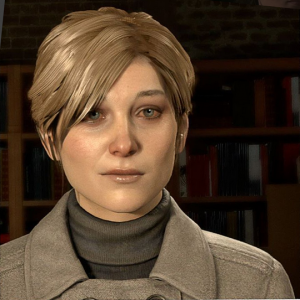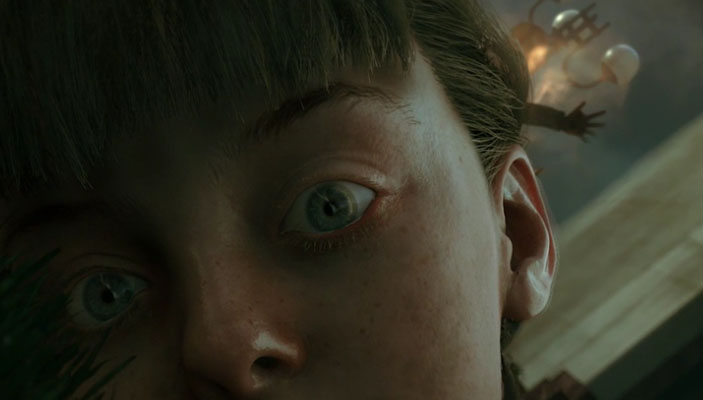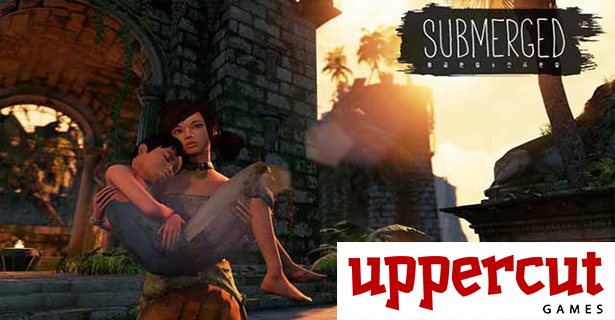I’ve been playing more Rise of the Tomb Raider this week, and in the course of my doing so, I’ve been thinking more about the manner in which parenthood is represented in the game. And there are two characters, specifically, whose roles in the game, whose relationships and interactions with Lara, and whose characterizations seem to perpetuate some of what I discussed in my last blog post regarding the manner in which father figures often seem to be constructed as both mentors and protectors and mother figures often seem to be constructed as either victims or villains.
(Spoilers to follow.)
 One of these two characters is Jacob, the leader of the Remnants, which is the community that protects the key to immortality (called the Divine Source) for which Lara searches. Lara first encounters Jacob in a jail cell when members of Trinity (the bad guys also searching for the Divine Source) capture and imprison her, and Jacob and Lara become allies when they work to escape together. At first, Lara is reluctant to befriend Jacob on the grounds that she and Jacob have different goals for the Divine Source—while he seeks to protect it (and his people), she wants to use it for so-called “good” in the world.
One of these two characters is Jacob, the leader of the Remnants, which is the community that protects the key to immortality (called the Divine Source) for which Lara searches. Lara first encounters Jacob in a jail cell when members of Trinity (the bad guys also searching for the Divine Source) capture and imprison her, and Jacob and Lara become allies when they work to escape together. At first, Lara is reluctant to befriend Jacob on the grounds that she and Jacob have different goals for the Divine Source—while he seeks to protect it (and his people), she wants to use it for so-called “good” in the world.
 But there is another reason why Lara initially is reluctant to trust Jacob–there is something else that causes her to keep her distance–and that is her relationship with Ana, who is the second character I want to discuss here. Ana seems to be constructed as a sort of mother figure to Lara, having been Richard Croft’s partner until he died and having continued to be a sort of mentor to Lara even after her father’s death. But when Trinity imprisons Lara, we come to realize that Ana is not as positive an influence in Lara’s life as she at first seems, for it is revealed that Ana has been working with Trinity all along, spying on Lara’s progress in her quest to find the Divine Source so that Trinity might get to it first.
But there is another reason why Lara initially is reluctant to trust Jacob–there is something else that causes her to keep her distance–and that is her relationship with Ana, who is the second character I want to discuss here. Ana seems to be constructed as a sort of mother figure to Lara, having been Richard Croft’s partner until he died and having continued to be a sort of mentor to Lara even after her father’s death. But when Trinity imprisons Lara, we come to realize that Ana is not as positive an influence in Lara’s life as she at first seems, for it is revealed that Ana has been working with Trinity all along, spying on Lara’s progress in her quest to find the Divine Source so that Trinity might get to it first.
As a result of this characterization, as a result of the depiction of Ana as a liar, a spy, a villain, it would seem that Ana is not the good (stand-in) mother that she is initially made out to be but a bad one, one who cannot be trusted, one who is not supportive of the person (namely, Lara) who looks up to her, and one whose advice and guidance is (erroneously) trusted. And rather than being revealed as a maternal character who supports Lara’s efforts, she is revealed to be selfishly motivated, seeking the Divine Source in an effort to save herself from a terminal disease. It is this selfishness, it is this untrustworthiness, it is this underhandedness and guile that casts Ana’s maternal presence and influence in a negative light. And in this way, yet another mother figure is revealed to be both a villain (in her connection to Trinity) and a victim (in her diseased terminality).
 But what seems especially important, here, is the manner in which Ana’s bad motherhood is used as a means of introducing Jacob’s new role in Lara’s life and of coloring the manner in which we (like Lara) view this role. Indeed, because Lara has found that she cannot trust Ana, she doesn’t know if she can trust anyone, Jacob included. And while Lara begins to trust Jacob after they help each other survive their escape from Trinity, it seems that her trust is solidified in one particular moment—the moment he is revealed to be the father of Sofia, one of the other members of the Remnants. In other words, Jacob’s role as a father seems to be what causes Lara to feel she can fully trust him, and perhaps this has something to do with the role her own father has played in her life and the manner in which his influence has been characterized as one of guidance and positive mentorship. Perhaps, then, Jacob’s revealed fatherhood and his physical presence allows him to be a more tangible stand-in for Lara and, then, allows him to paternally guide her throughout the rest of the game. It does, indeed, seem that his moral influence causes her to work to help the rest of Jacob’s community in their fight against Trinity and to seek to do what she thinks is right, just as her own father’s influence has caused her to quest for the Divine Source in the first place, in an effort to do what she thinks is right for her father and for the world.
But what seems especially important, here, is the manner in which Ana’s bad motherhood is used as a means of introducing Jacob’s new role in Lara’s life and of coloring the manner in which we (like Lara) view this role. Indeed, because Lara has found that she cannot trust Ana, she doesn’t know if she can trust anyone, Jacob included. And while Lara begins to trust Jacob after they help each other survive their escape from Trinity, it seems that her trust is solidified in one particular moment—the moment he is revealed to be the father of Sofia, one of the other members of the Remnants. In other words, Jacob’s role as a father seems to be what causes Lara to feel she can fully trust him, and perhaps this has something to do with the role her own father has played in her life and the manner in which his influence has been characterized as one of guidance and positive mentorship. Perhaps, then, Jacob’s revealed fatherhood and his physical presence allows him to be a more tangible stand-in for Lara and, then, allows him to paternally guide her throughout the rest of the game. It does, indeed, seem that his moral influence causes her to work to help the rest of Jacob’s community in their fight against Trinity and to seek to do what she thinks is right, just as her own father’s influence has caused her to quest for the Divine Source in the first place, in an effort to do what she thinks is right for her father and for the world.
In this way, Jacob’s presence in the game shifts, from potential (and potentially untrustworthy) ally to trusted paternal presence, moral figure, and mentor. But, again, this characterization only begins to occur after Ana’s construction as bad maternal presence is revealed, thereby placing Jacob’s influence over Lara in opposition to that of Ana’s. Ana’s negative construction, then, works (at least, in part) in service of Jacob’s positive one, and the conversation between the two seems to perpetuate the narrative lineage of the bad mother and the good father, thereby problematically gendering the roles of parents and mentors.




